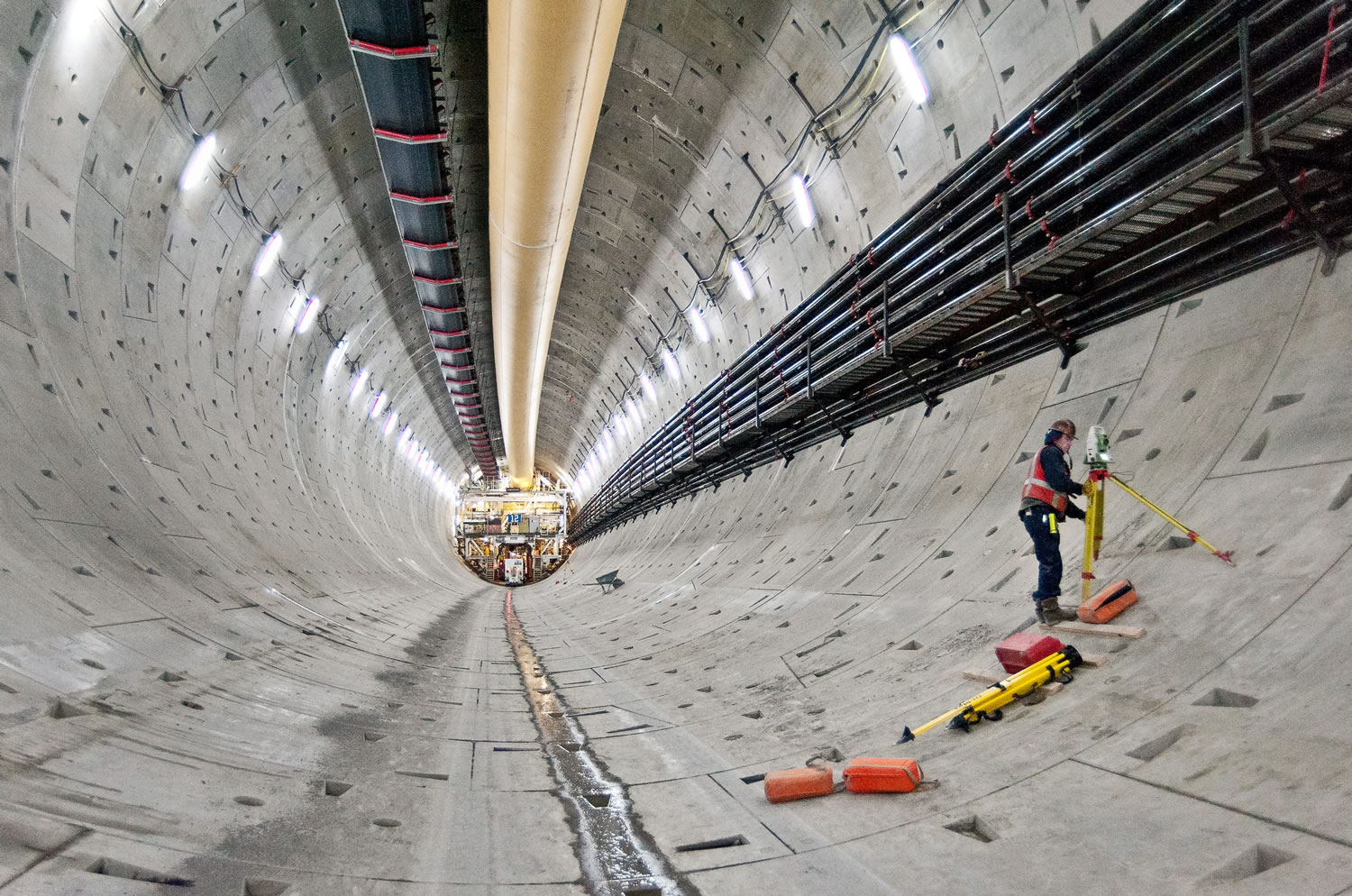SEATTLE — When the currently stalled Highway 99 tunnel project in Seattle is completed, drivers could face an all-day $1 toll, with an increase to $1.25 during peak hours.
That’s the recommendation released Wednesday from an advisory committee studying the various tolling scenarios for the Seattle tunnel. The recommendation goes to the Washington state Transportation Commission and the Legislature, who will make a final decision. But that’s not any time soon. A decision is not expected until sometime next year.
The advisory committee tried to find the “sweet spot” for the toll that would keep 80 percent of drivers on the highway in peak times without diverting to downtown streets, committee co-chair Maud Daudon told King 5.
Under the suggested scenario, the tunnel would be tolled every day of the week, including holidays and weekends. The committee also asserts it would generate $1 billion over 30 years. The tunnel plan called for $200 million of its $1.1 billion construction price to come from tolling. The committee said its recommended plan would cover that.



